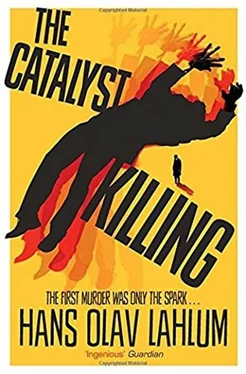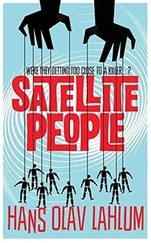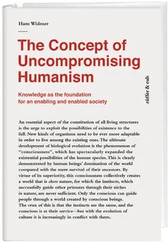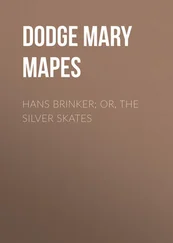Patricia lifted the receiver on the second ring and held it to her ear. Much to my relief, it was a very brief conversation. Patricia listened to the short message given by the person at the other end. She nodded pensively. Her reply was brief and polite.
‘That is just as we thought. Thank you so much for letting me know, all the same.’
There seemed to be no drama. The person at the other end continued talking, but I was not able to make out the words.
Patricia listened for a few seconds more, but then interrupted briskly: ‘Thank you. Hopefully everything will be all right. I will call you back later today.’
She put down the telephone and apologized for having answered it, but gave no explanation as to who had called or what it was about.
For a short while afterwards she sat deep in thought, staring straight ahead. Then she returned to where we had left off the conversation.
‘Yes, we were talking about Miriam Filtvedt Bentsen. Have you heard any more about her condition?’
I said yes, and that all was well with Miriam Filtvedt Bentsen, given the circumstances. There was a danger that she would suffer from the injuries to her neck and shoulders for a while, and that it would be some time before she could write again. But she had regained consciousness an hour ago and was now definitely out of danger after the operation. She would survive, and live a meaningful life.
‘Good,’ Patricia said.
She said it so perfunctorily, without the slightest bit of feeling. This only fanned my earlier irritation that she had so obviously delayed asking the question.
I also had the strong feeling that she would have preferred it if I had said that Miriam would not survive. And so, for the first time in my life, I was truly angry with Patricia.
Later, I could not remember my exact words. But I had one of my rare, furious outbursts and said exactly what I thought and felt at that moment: that Patricia had always disliked Miriam and been jealous of her. And that I thought that she had now shown an alarming lack of human empathy for a young woman who might suffer permanent injuries and had nearly lost her life, thanks to her heroic attempt to foil a political assassination. I apparently finished this rant by asking Patricia whether she had any consideration for people in the world outside this house.
Patricia heard me out, remaining unusually still for an unusually long time.
‘Consideration. Yes. One of us is certainly not showing any consideration here,’ she said in the end. Then she was quiet again.
My rage had passed, but my anger on the part of the wounded Miriam Filtvedt Bentsen remained. So I said that I would shortly have to show consideration to some other people, and pay someone a visit.
Whether it was my intention that Patricia would understand the context or not, I was not able to say in retrospect. But she had of course understood instantly.
‘Pay someone a visit today… Yes, of course. At Ullevål Hospital, perhaps?’
I nodded, almost defiantly, I realized, as soon as I had done it. I was still very angry with her.
‘And so everything crashes around me,’ Patricia said, with a deep sigh. Her head fell forward onto her chest as she said it.
I did not understand, and she said nothing more in explanation. Instead she kept her mouth firmly shut, as if in panic.
We sat there in tense silence for a few seconds. Then I made a point of standing up.
‘Please, just go if you must, if that is how you want it to be. It is important to visit, especially if it is someone you care for,’ Patricia said.
Then once again she sat quite still in her wheelchair.
I left, with quicker steps than usual.
I turned around just outside the door, went back into the room and thanked her again for all her help with the investigation. But later I doubted if she had even heard me. For once she said nothing in response, but continued to sit huddled in her wheelchair. She seemed to have withdrawn entirely into her own world.
I thought I saw a tear run down her left cheek. But I might have been mistaken, and in my agitation, I did not feel the need to approach her. Her comment about everything crashing around her only seemed to confirm her egoism, as the situation now stood.
Patricia looked like the loneliest person in the world, sitting there in her library among all her books and with the remains of our coffee on the table. But when I thought of Miriam Filtvedt Bentsen lying lifeless on the asphalt in Frogner Square, and her subsequent fight for life in a hospital bed, I thought that Patricia deserved to be left with her own thoughts today. And in any case, I was certain that the maid was there and would appear as soon as I had left.
So I closed the door behind me a little more loudly than necessary, and left the house without turning back.
The atmosphere in Room 302 at Ullevål Hospital was far more pleasant and uplifting.
Miriam Filtvedt Bentsen was in better shape than I had feared. Her shoulders and arms were tightly bandaged, but she was awake and reading a book about the history of French literature when I came into the room. She had obviously learned to turn the pages with her nose. She put the book down as soon as she saw me, and lit up the room with one of her smiles. And the mood soared when I put down the flowers and the books on the table beside her.
‘Oh, I don’t know what to say,’ Miriam Filtvedt Bentsen exclaimed, when she saw the gifts.
It may sound strange, but she looked just as in control when she said this as she always did. So I chuckled and she laughed at me laughing at her.
There was still a danger of permanent damage to her shoulder, but she would possibly be able to write again in time for the autumn exams. But whatever the case, it was simply a huge relief for her to be alive and to be able to read again. Her parents and younger brother had already been to visit. And it was a lovely surprise that I had come too, Miriam Filtvedt Bentsen said with a bold little smile from her sickbed.
I told her that she had been exceptionally astute to run to the stage and prevent Trond Bratten from going on, given that I had not even had time to tell her. She thanked me, and with another smile said that that was precisely why she had understood. I had mentioned that there might be an assassination attempt earlier, so when I just ran on straight into the building without even apologizing, she could not think of any explanation other than the planned assassination. She had simply done what she had to for society and democracy, and despite the pain, she did not regret it at all.
I assured her that when she left hospital there would be many more gifts and congratulations, from both friends and strangers. The newspapers had already made several enquiries to the police asking when she could be interviewed. Miriam raised her head with an inquisitive look in her eyes and asked if I knew which papers had rung. Her eyes opened wide when I said the local Lillehammer paper Dagningen and the SPP paper Orientering had called at least twice, and that Aftenposten, Dagbladet, VG and Arbeiderbladet had all been on the phone. When I added that the NRK radio and television had also been in touch, Miriam looked like she wanted to jump out of bed and call them all immediately.
As this was all positively received, I added with some trepidation that her efforts in saving the party leader would no doubt increase support for the SPP. And even more hesitantly, I added that my own sympathies for the party had certainly increased thanks to her efforts in recent days.
Then I hastily asked whether she might allow me to take her out to dinner as soon as she got out of hospital. And we would then have plenty of time to talk about the case, and other things, at one of the best restaurants in town.
Читать дальше












